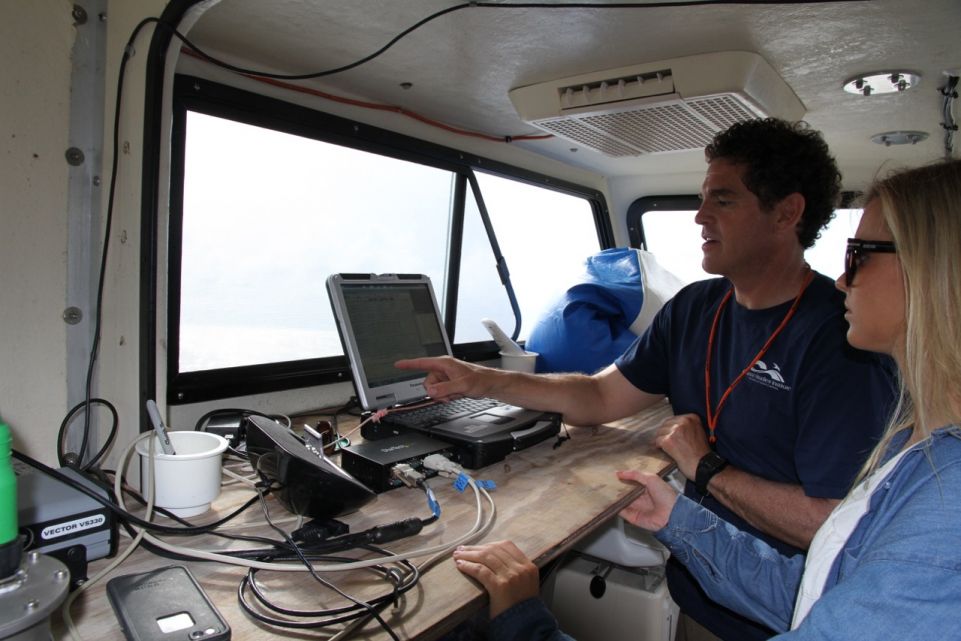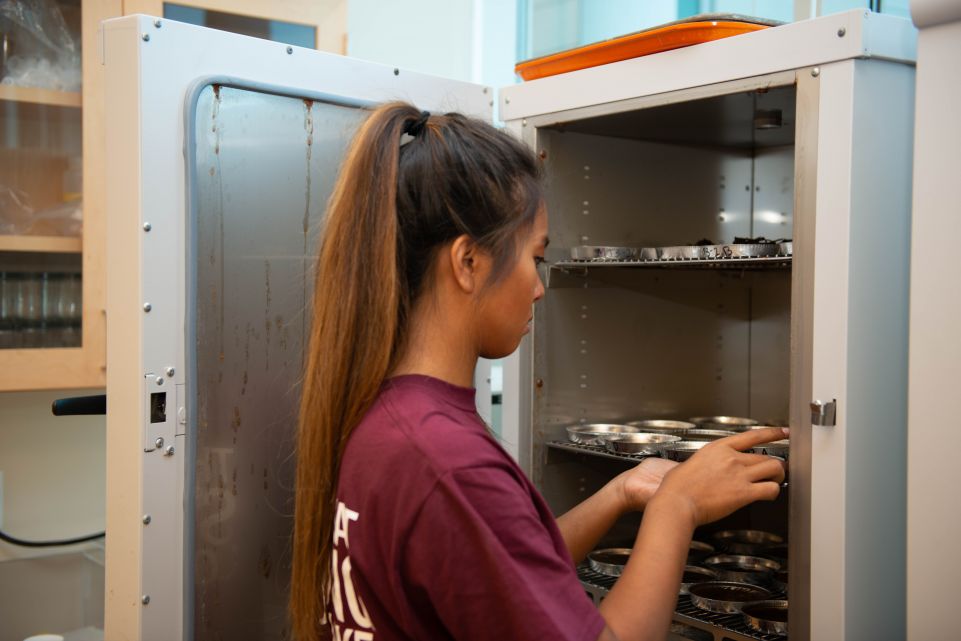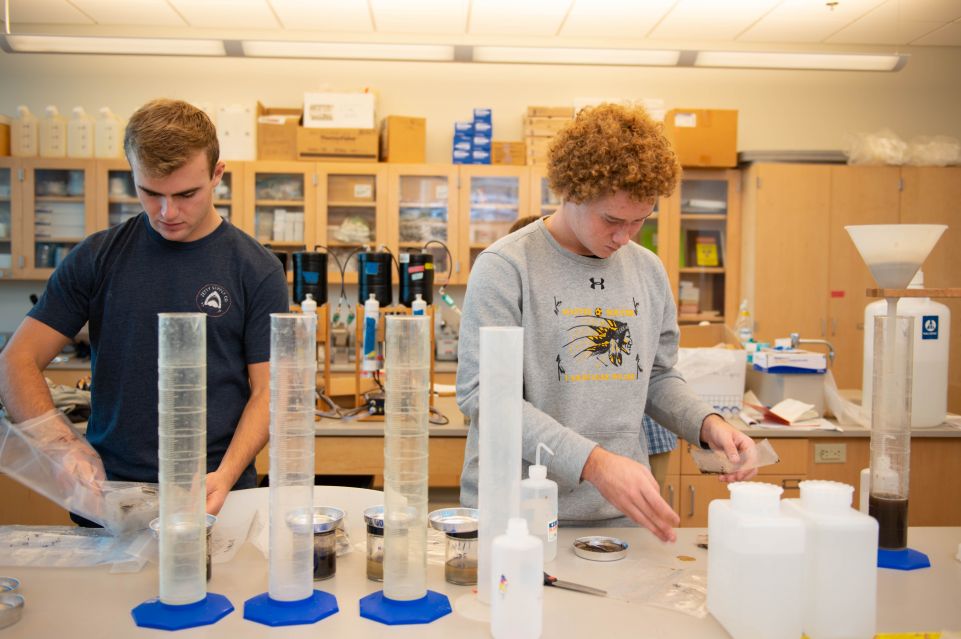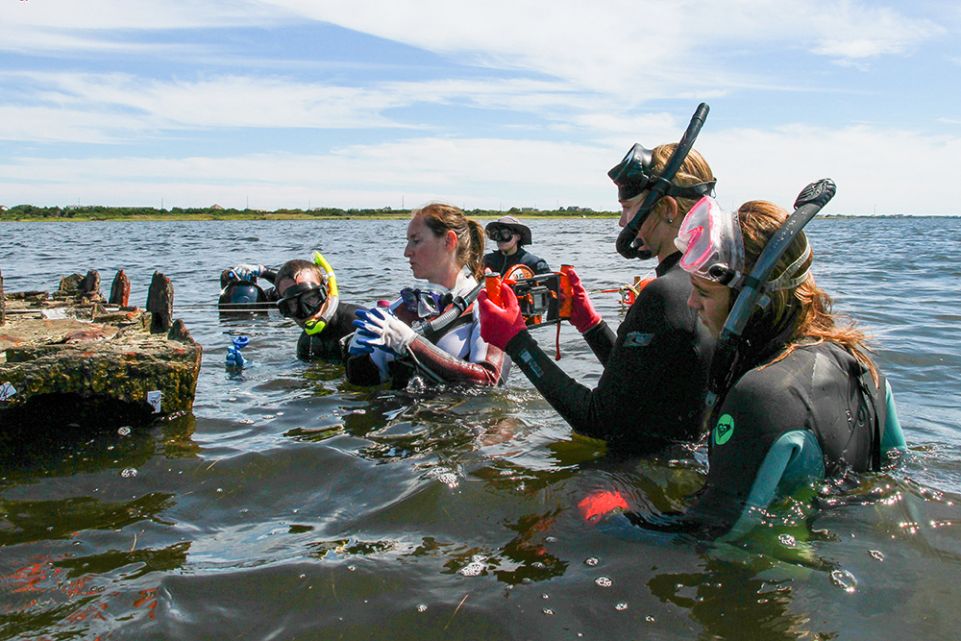Internships
Internships for High School & Undergraduate Students
The Coastal Studies Institute offers internships for high school (HS) and undergraduate (UG) students, including those attending the UNC Outer Banks Field site and the ECU Semester Experience at the Coast, interested in coastal sciences. Internship projects have included education, science journalism, photojournalism, sustainable design, ocean observing, and estuary processes and ecology.
For more information or questions not addressed in the FAQ section below, please contact Julie Kirn.
Summer 2025 Internships
We are no longer accepting applications for undergraduate summer opportunities. High school opportunities will be posted soon.
Internship frequently asked questions
Who is eligible for internships?
For the high school internships: rising freshmen through rising seniors.
For undergraduate internships: students that have a high school diploma or equivalent and at least one semester of study remaining after the internship before they earn their degree.
When are internships offered?
At CSI we offer internships during the Spring, Summer, and Fall semesters.
What internships are offered?
This changes from season to season, as projects that faculty are willing to bring interns on for change all the time.
When are internship positions posted for each season?
We do our best to post the available internships at least one month before the application deadline.
How long do the internships last?
Typically, an internship lasts no longer than a semester of school (typically 3-4 months).
What should I anticipate from my internship experience?
Once selected for your internship, you and your mentor will create a work plan that outlines things like internship evaluations, hours to be worked, and internship deliverables. Each intern will have an evaluation at the halfway point and the end of the internship.
What will my internship hours be?
This will be decided between you and your internship mentor once you are selected for the internship. Typically, intern work hours fall between 8am – 5pm, Monday through Friday, though there are some exceptions.
Will I be paid during my internship?
CSI internships are not state-funded. Some internships will be supported through research grants.
Will I be provided housing for my internship?
There is limited housing available for undergraduate students interning at CSI, though it is not guaranteed and will be paid for by the intern, unless otherwise stated.






 Based at the Coastal Studies Institute (CSI), the North Carolina Renewable Ocean Energy Program (NCROEP) advances inter-disciplinary marine energy solutions across UNC System partner colleges of engineering at NC State University, UNC Charlotte, and NC A&T University. Click on the links below for more information.
Based at the Coastal Studies Institute (CSI), the North Carolina Renewable Ocean Energy Program (NCROEP) advances inter-disciplinary marine energy solutions across UNC System partner colleges of engineering at NC State University, UNC Charlotte, and NC A&T University. Click on the links below for more information. ECU's Integrated Coastal Programs (ECU ICP) is a leader in coastal and marine research, education, and engagement. ECU ICP includes the Coastal Studies Institute, ECU's Department of Coastal Studies, and ECU Diving and Water Safety.
ECU's Integrated Coastal Programs (ECU ICP) is a leader in coastal and marine research, education, and engagement. ECU ICP includes the Coastal Studies Institute, ECU's Department of Coastal Studies, and ECU Diving and Water Safety. The ECU Outer Banks campus is home to the Coastal Studies Institute.
The ECU Outer Banks campus is home to the Coastal Studies Institute.

